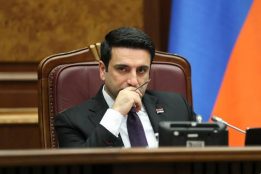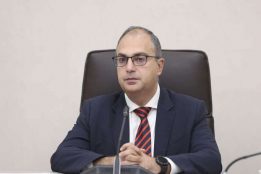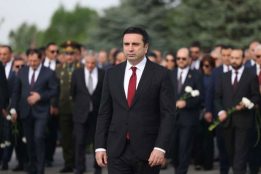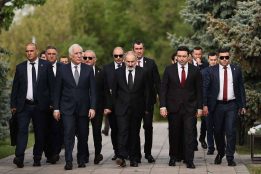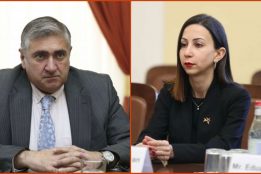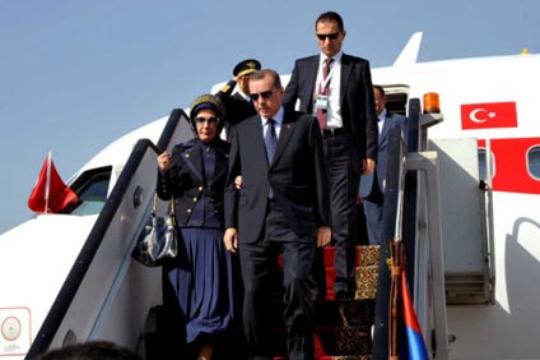
Foreign Policy published Gamze Coskun’s recent article on Turkey’s foreign policy concerning the Middle east. Read the full article below:
The Arab Spring has prompted a lot of talk about Turkey’s possible role as a model. Turkey’s recent economic success and the relative liberality of its institutions have made it a point of reference to many in the Middle East.
Let’s leave aside for the moment the issue of whether the Arabs really need a role model, since they’re perfectly capable of establishing their own system without copying either Turkey or the West. Being a model is not only about having a well-functioning democratic system but also having the capacity to be able to foster it domestically and internationally and to be able to put rhetoric and aims into action. Does Turkey really offer a useful template for democratic values and institution building?
First of all, it’s worth taking a look at Turkey’s capabilities. While there has been considerable discussion of Turkey’s role in the region, a look at the country’s diplomatic, economic, and soft-power resources is sobering. Though Turkey has 25 diplomatic missions in the Arab countries, at last count only six of the 135 staffers in these missions actually spoke Arabic. Needless to say, this says a lot about Turkey’s ability — and perhaps its willingness — to develop wide-ranging diplomatic relationships throughout the MENA (Middle East and North Africa). Furthermore, although Turkey’s trade relations with the region are frequently cited, most of its exports are based on natural resources and low-technology (56 percent), followed by medium-technology goods (40.5 percent). Its share of high-tech exports to the region remains low (3.5 percent in 2010). This suggests that Turkey is not necessarily one of the main economic competitors in the region, a factor that will tend to limit its influence.
My previous employer, the Turkish think tank USAK, has published a report offering some useful data for assessing Turkey’s capacity as an economic and diplomatic actor in the Arab world. A USAK report — which includes the data mentioned above — shows that there is much that needs to be done if Turkey wishes to increase its credibility as a regional role model. Currently, Turkey is far from having the capabilities to take action in line with its rhetoric. This doesn’t exactly inspire confidence in Ankara’s ability to project its influence into more dysfunctional Middle Eastern states.
Let’s take “soft power” for a moment. The report notes that, while Turkish state TV began Arabic-language broadcasting to the Arab countries in 2010, its presence on the airwaves still lags far behind other Arabic satellite broadcasters — not to mention Arabic-language broadcasting from the western countries, Russia, and Iran. (The report also notes that Turkish TV dramas are highly popular around the region — though some polling figures suggest that more conservative segments of local populations often regard these shows as a bad influence.) Of the 9,374 foreign students who chose to study in Turkey in 2011, a mere 1,123 (12 percent of the total) were Arabs. This suggests that the talk of Turkish soft power influence might require a bit of qualification.
Despite its structural shortcomings, Turkey has undeniably been working hard to develop its political and economic ties within the broader region. (The photo above shows Turkey’s Prime Minister Recep Tayyip Erdogan arriving in Cairo for an official visit on Nov. 17.) Yet Ankara has offered little in the way of concrete measures to promote democracy or safeguard human rights. Generally the Turkish government prefers to stick to the principle of non-intervention and non-interference in other countries’ internal affairs. Although this so-called zero problems policy has helped Turkey to establish good relations with the MENA countries, the non-intervention aspect of this policy has somewhat hindered Turkey’s open emphasis on democracy promotion. Most notably, the cases of Syria and Libya have exposed the contradiction between Turkey’s claim to support democracy and its reluctance to undertake actions that would amount to concrete support for pro-democracy forces within specific countries.
And that, perhaps, is somewhat symptomatic of a larger problem. When Turkey mentions the subject of democracy promotion at all, it usually does so in the context of cooperation with its partners in the West. While this is understandable in light of Turkey’s underdeveloped capacity, such talk is also likely to undermine that entire undertaking. Some segments of Arab society already perceive Turkey as a tool of the United States and Europe — in conjunction with a widespread notion among Arabs that Turks tend to be “Western-minded” whether they are liberals, Islamists, or conservatives. If cooperation with the West is a given, then Turkish policymakers need to devise clear strategies for neutralizing such accusations.
Not everything has to be done by the government, of course. In addition to putting forth a clear national agenda, civil society organizations can also play a key role in expanding Turkey’s influence. Yet even these options currently remain starkly limited. Turkish non-government organizations lack the relevant know-how and skills to exercise influence in the region. Notwithstanding their well-meaning rhetoric about respect, dignity, sympathy, and understanding, all too often Turkish NGOs seem to have difficulties developing concrete plans or agendas and making them more public and affecting the policy-makers.
Still, there is great potential for NGOs and the rapidly growing civil society sector in Turkey to cooperate with the Arab countries. NGOs can organize events on political, economic, and social topics, share their experiences, and shape public opinion. They can identify the needs of societies and even can help to find out the best policies for the newly emerging governments to address the problems. These kinds of efforts may also help to change mutual misperceptions as well as sharing relevant Turkish experience of democracy and civil liberties that can help both sides to foster their own democratic transformations.
Turkey still has a long way to go in developing its own democratic institutions. We still face enormous challenges in protecting civil liberties and reforming our judicial system, to name but two crucial elements on the path toward genuine democracy. There is still considerable debate within Turkey about the extent of press freedom, the imprisonment of dissidents, and so forth. This is unavoidable, given that the road toward democracy is never perfect. But such issues invariably create doubts about the consistency of the Turkish model in the international community.
Turkey also faces problems when it comes to projecting its political influence. Turkey still lacks an in-depth understanding of the internal dynamics of the MENA countries (even if its knowledge of the region is still better than that of its partners in Europe or the United States). A major factor is the ongoing Kurdish conflict, which creates an additional constraint in Turkey’s dealings with Syria, Iraq, and Iran. This not only makes it harder for Ankara to implement its agenda, but also ends up creating many misperceptions about its policies in the Arab world.
In short, Turkey faces many serious obstacles when it comes to advertising the advantages of its system. Its pro-Western image, its limited capacity to project influence, and the divide between rhetoric and reality are all part of the problem. So, too, are its social and political differences from the Arab countries in respect to the understanding of society, ideology, secularism and Islam, and so on. While I think it’s basically true to assume that Turkey’s Muslim identity will help it to argue the virtues of democracy to the Arab countries, these fundamental differences in culture are sure to complicate matters.
There is no doubt that Turkey can make an impact and has a role to play in the region. But its inherent weaknesses mean that actual ability to become a role model and source of inspiration will remain constrained for some time to come. Turkey has to analyze its deficiencies in this respect if it seriously aims to have a credible regional role.
I believe that our country does have a constructive role to play in the region. But its influence is likely to remain minimal unless Turkey makes a much more concerted effort to assert its credibility and effectiveness in the Middle Eastern transition process. The Arab countries are unlikely to be impressed by high-minded Turkish rhetoric unless we offer effective action to back it up.

















